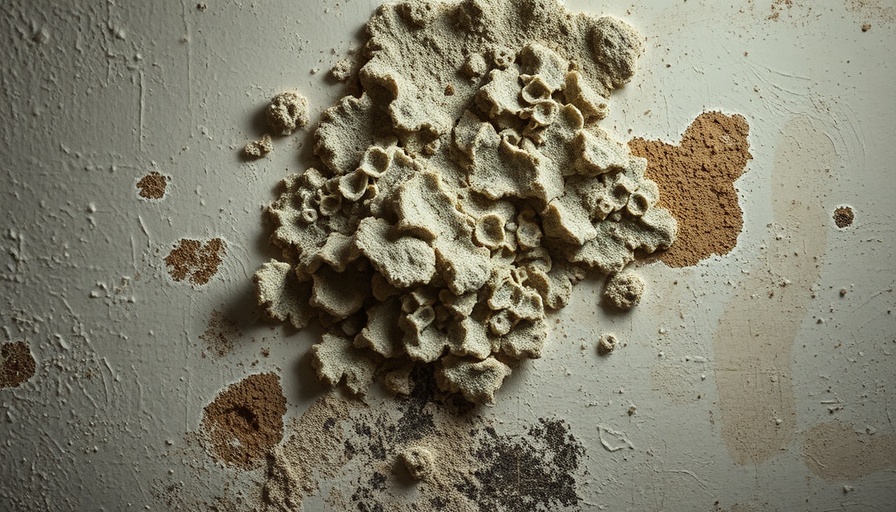
Understanding the Mold Environment in Portland
Living in the Pacific Northwest has its merits: lush landscapes, vibrant communities, and a distinct, ever-appealing climate. However, as beautiful as Portland may be, it comes with its own set of challenges, particularly regarding mold exposure. The city’s high humidity and frequent rainstorms set the stage for mold growth, making your home a potential breeding ground for harmful fungi.
In Portland, residents must recognize that mold is not merely an unsightly intruder; it poses serious health risks. Various species of mold can produce allergens and mycotoxins, potentially leading to severe health issues, especially for those with pre-existing conditions. Taking stock of the situation and maintaining vigilance ensures that mold doesn’t undermine indoor air quality or your wellbeing.
Recognizing Symptoms of Mold Exposure
The symptoms of mold exposure can masquerade as common ailments but should not be overlooked. Individuals may wake up fatigued, only to attribute their malaise to a busy workweek or seasonal allergies. However, Portland residents need to be vigilant, particularly following heavy rainfall or if they have experienced water damage in their homes.
Common symptoms include respiratory issues like coughing and wheezing, skin irritations such as rashes or itching, and even neurological symptoms. Those with allergies might suffer intensified responses, including nasal congestion and sneezing. It becomes crucial for homeowners and renters alike to listen to their bodies; rather than dismissing these symptoms, it’s essential to trace their origins back to potential mold exposure.
The Importance of Early Intervention
More than mere discomfort, ignoring initial mold exposure symptoms can lead to chronic health complications. While it may begin with fatigue and sneezing, the progression could include severe respiratory issues and susceptibility to infections. Discovering and addressing the mold presence early can prevent long-term impacts on health and home structure.
A proactive response not only safeguards your health but also protects your investment. Mold can significantly weaken the fabric of your home, leading to costly repairs down the line. Engaging professional mold remediation services at the first hint of symptoms can save both health and finances.
Identifying Common Mold High-Risk Areas
Mold thrives in damp, warm environments, and in Portland, certain high-risk areas within homes should be scrutinized regularly. Basements, bathrooms, and kitchens, often neglected, are prime spots for mold growth. Homeowners must become persistent inspectors, keeping an eye out for mold, moisture damage, or even a persistent musty odor.
Moreover, recognizing the signs of water intrusion like peeling paint, discoloration, or water stains can help catch issues before they escalate. Being vigilant can facilitate those crucial early interventions.
Insights from Experts: Best Practices for Mold Prevention
Experience suggests that preventing mold in your Portland home is a continuous effort requiring attention and action. Experts recommend the use of dehumidifiers to combat the pervasive humidity in the region. Regular maintenance, repairs, and surveillance—whether inspecting plumbing for leaks or ensuring proper ventilation—are essential steps.
It’s also wise to clean exposed surfaces, such as bathroom tiles or basement floors, continuously to prevent dirt and moisture from accumulating. Remember that mold prefers areas where moisture is present; consistent cleaning and vigilance can assist in maintaining healthy indoor air quality.
Long-Term Implications of Mold Exposure
Long-term exposure to mold can lead to serious health implications. Studies suggest that individuals with chronic respiratory conditions, such as asthma, may experience worsening symptoms upon exposure. After prolonged exposure to mold, persistent headaches, concentration difficulties, or even nerve issues may emerge.
Incorporating education and awareness about mold symptoms is vital for Portland residents. Being informed provides individuals with the power to address the issue effectively. Ignoring these health impacts can lead to even larger societal problems as chronic health conditions emerge within affected communities.
Final Thoughts on Mold Exposure Risks
Portland’s environmental conditions make mold growth a real concern for homeowners and renters alike. Recognizing symptoms early and taking proactive measures can ultimately protect health and safeguard homes. As you enjoy the vibrancy of this city, ensure that your living environment remains healthy and mold-free.
For residents concerned about mold or experiencing symptoms related to exposure, it is imperative to seek out professional assessments and remediation services promptly. As the saying goes, prevention is better than cure; in the case of mold, this timeless wisdom undoubtedly rings true.
Are you facing suspected mold exposure? Don’t hesitate—getting professional help is vital to ensure your health and home are preserved. For a thorough consultation, contact a certified mold remediation professional in your area today.
 Add Row
Add Row  Add
Add 




 Add Row
Add Row  Add
Add 

Write A Comment